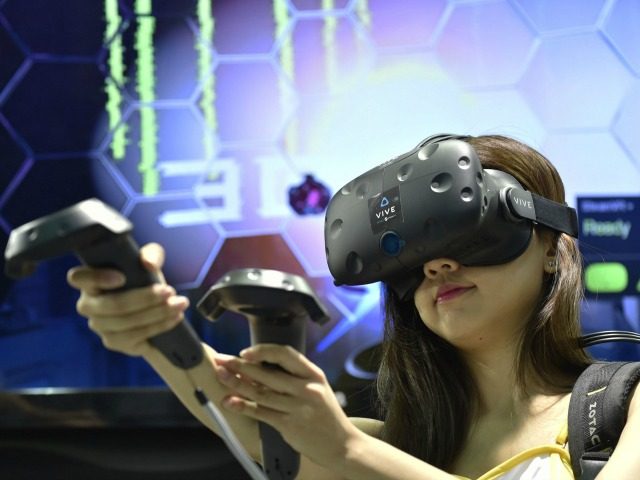According to Valve, only 30 out of more than 1,000 virtual reality (VR) titles on the Steam marketplace have earned more than $250,000.
While the slapstick game Job Simulator has made more than $3 million on its own, most attempts to capitalize on the new wave of virtual reality headsets have been only a fraction as successful. The vast majority of VR-enabled games have yet to approach a quarter million in revenue.
Valve President Gabe Newell says the PC gaming giant is “optimistic” and that the company believes that VR is “going great.” Despite the overall lack of performance among VR titles, Newell claims that it’s “going in a way that is consistent with our expectations.” Even so, Newell says that his company is also “pretty comfortable with the idea that it will turn out to be a complete failure.”
The Valve co-founder recognizes that a high-cost barrier to entry will continue to be a problem for VR, between both the costs of virtual reality headsets and as PC hardware struggles to meet the demands of the software being created. Whereas most of the PC industry tends to operate years beyond the requirements of the games that release, the intensive resource demands of virtual reality will continue to operate on the cutting edge of hardware capabilities for the foreseeable future. It’s a pretty severe method by which to cut down the potential market for a given title, and a challenge that Newell readily acknowledges.
Whereas most of the PC industry tends to operate years beyond the requirements of the games that release, the intensive resource demands of virtual reality will continue to operate on the cutting edge of hardware capabilities for the foreseeable future. It’s a pretty severe method by which to cut down the potential market for a given title, and a challenge that Newell readily acknowledges.
In his characteristically frank manner, he explained:
We’re at the beginning of this. Vive is the most expensive device on the market. It’s barely capable of doing a marginally adequate job of delivering a VR experience. We have to figure out all sorts of other problems before even the hardware question gets answered, much less what’s going to be the compelling content.
Newell doesn’t think a cost reduction is going to do very much just yet, however. Even if VR was made “80% cheaper,” it’s still “not a huge market.” And according to him, it won’t be until there’s “a really incredibly compelling reason for people to spend 20 hours a day in VR.” Cost reduction won’t be a concern until there is “something that will really cause millions of people to be excited” about the tech.
Nevertheless, developer enthusiasm is high. Newell said: “Developers are super excited. There’s nobody who works in VR saying, ‘oh I’m bored with this.’ Everybody comes back. For every idea they had in their first generation product, they have ten ideas now.”
Follow Nate Church @Get2Church on Twitter for the latest news in gaming and technology, and snarky opinions on both.

COMMENTS
Please let us know if you're having issues with commenting.